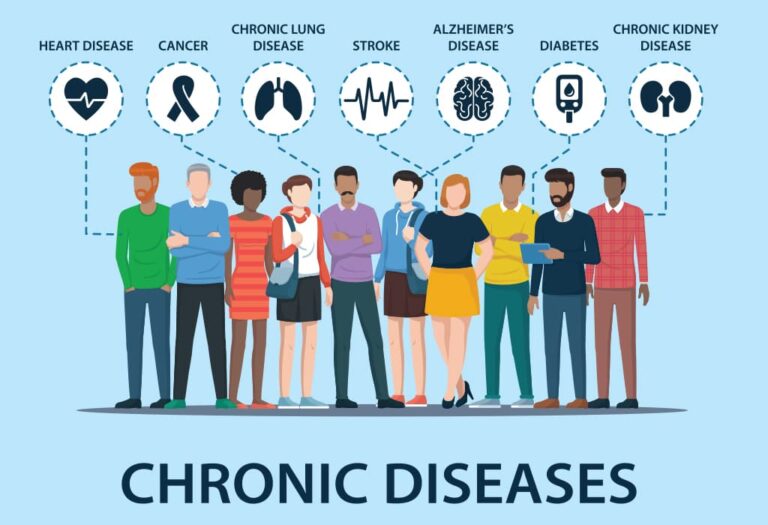Infant and NewBorn Care: A guide to first-time parents
Author: Rose Stella
Rose Stella
Category: Health

The time that you have been waiting for has finally arrived! Your 9-month journey has reached its end. The arduous process of morning sickness to the painful childbirth has reached its end. you're feeling excited to take home your newborn baby, but then you realize that you know nothing about infant and newborn care!
Being a first-time parent is a whole new experience. Taking care of an infant
is challenging and fulfilling. It is necessary to know some tips and
techniques to ensure the safety and well-being of your newborn baby.
Worry no more! We'll provide pointers that can make even the most
apprehensive first-time parents feel confident in their ability to care for a
newborn.
Asking for assistance following the birth of the infant
Becoming a first-time parent is an overwhelming task. Many new parents opt to take care of everything by themselves. Couples believe that doing everything on their own is the way to go but unfortunately, asking for tips and help for infant and newborn care could go a long way.
Asking professionals about basic tasks such as nursing or bottle-feeding is beneficial. These individuals could also demonstrate the proper way to hold, burp, change and care for the baby.
Furthermore, having the help of relatives and friends could help alleviate the pressure of being first-time parents. These people could provide you with tips and practices attested by their very own experience. They can be quite a handful, but still, they can be helpful!
Choosing a trustworthy pediatrician

Newborn babies are prone to various diseases because of their weak immune systems. Choosing a pediatrician whom you trust before childbirth could be beneficial. A lot of parents neglect this task and often do this when their babies get sick. Having a pediatrician whom you've carefully evaluated could give you peace of mind.
Helpful tips on choosing a pediatrician
- Choose a pediatrician with a convenient office location.
- Following your ob-gyn recommended pediatrician.
- The doctor's credentials and experience.
- Time and availability of the doctor.
- Listening to family and friends' recommended pediatrician.
Taking care of a newborn
The fragility of infants can be daunting if you haven’t spent much time around them. Here are some fundamentals to keep in mind:
- Before handling your baby, wash your hands (or use hand sanitizer). Because newborns have a weak immune system, thus they are susceptible to illness. Make sure everyone who comes into contact with your infant has clean hands.
- Support the head and neck of your child. Cradle the head when carrying your baby and support the head when laying the baby down.
- Refrain from shaking your newborn baby. Shaking can lead to internal bleeding in the brain or even death. Gently blowing the baby’s cheek or tickling its feet is enough to wake up a baby.
- Newborn babies are fragile creatures. Playing rough games can be dangerous. It is beneficial to refrain from these activities.
Feed your baby frequently.
Breastfeeding is recommended for babies for at least six months since birth. Breastfeeding may be challenging at first. Nursing mothers need to make sure that their infants are latching and fastening onto the breast properly. Many hospitals have consultants regarding lactation that could help first-time moms.
Whether you’re breastfeeding or using a formula, babies should be fed every one to three hours, for a total of eight to twelve meals in 24 hours. Newborns who eat often can restore the weight they have lost after delivery. As your baby gets older, she’ll be able to consume more at each meal and eat less frequently.
Establish emotional connection

Making an emotional connection with your baby helps to their growth and development. Physical intimacy is the best way to help build an emotional connection. The bond between parents and child occurs in the first hours and days after birth. Begin connecting with your infant by cradling and gently stroking the baby in various ways. Connecting and forming bond with the baby is one of the fulfilling task of infant and newborn care.
Changing diapers tips
Out of all the tasks needed to take care of a newborn, this one is probably the most dreaded. First-time parents often get intimated with stinky poops and pees. Changing diapers is indeed a challenging task. An infant proximately changes diaper about ten times a day, or about 70 times a week. It is essential to change diapers as frequently as possible to avoid diaper rash.
Tips to avoid and prevent diaper rash:
- Replace your soiled diaper as frequently as possible.
- Apply a thick layer of diaper rash cream after gently cleaning the region with mild soap and water (wipes might be irritating). Zinc oxide creams are preferred because they provide a moisture barrier.
- Wash clothes diapers with dye and fragrance-free detergents.
- Take breaks from using a diaper for a portion of the time in the day. This gives the skin a chance to air out.
Diaper rash that takes more than three days to heal requires a medical prescription. It is necessary to call your doctor.
Bathe safely.

Basic hygiene is essential to babies, but bathing too frequently is not recommended.
Sponge bathe on your infant shall happen until:
The navel heals entirely once the umbilical cord slips off (1-4 weeks). The circumcision takes 1-2 weeks to recover. In the first year, a bath two or three times per week is sufficient. Bathing more frequently may be drying to the skin.
Before bathing your baby, make sure you have the following supplies on hand:
- A smooth, clean washcloth.
- A soft brush, towels, or blankets mild, unscented baby soap and shampoo.
- Fresh diaper and fresh clothes.
Sleeping Basics.
Newborn babies sleep for 16 hours or more and sleep for two to four hours a time. Babies wake up every few hours to feed. Babies’ digestive systems are so small that they require nourishment every few hours (or more often if your doctor is concerned about weight gain). It is recommended for babies to sleep on their backs for safety purposes.
There is a spot-on manual on being a parent. Each parent improves on every journey and milestone they experience. Loving and supporting your child is the best tip to strive through this point in your life. Do it with love and you will be pro of infant and newborn care in no time!













